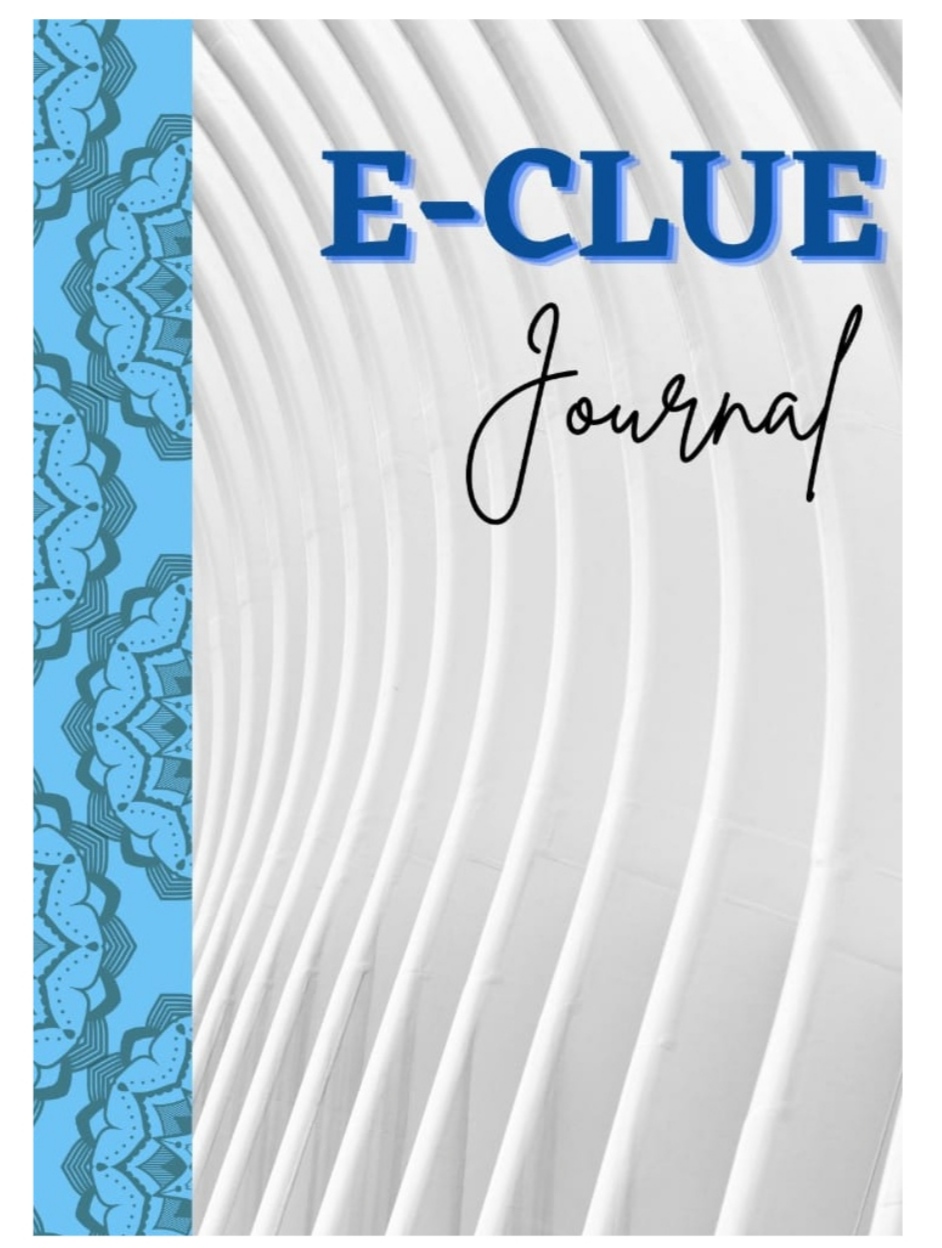INCREASING STUDENTS VOCABULARY BY USING MIND MAPPING TECHNIQUE AT SMP N 2 BITUNG
DOI:
https://doi.org/10.53682/eclue.v8i2.1621Keywords:
Vocabulary, Mind-Mapping, Increasing, Junior High SchoolAbstract
The purpose of the study was to find out whether using mind mapping technique can increase students vocabulary or not It was conducted at SMP N 2 Bitung The subject in this study was Class V11 4 academic year 2017 2018 which consisted of 35 students This research was a pre experimental design with one group pre test post test Pre test is the test which was given to the students before treatment to find out students vocabulary stock Post test is the test which was given to the students to find out the students achievement after treatment or teaching them by using mind mapping technique The findings showed that the students score in post test were higher than the pre test The result of the data analysis revealed that the mean score of post test 82 was higher than the pre test 49 In addition the standard deviation of pre test was slightly higher 7 05 than the standard deviation of post test 5 71 This indicated that the use of mind mapping technique increased students vocabulary < p>
References
Aeborsold and Field 1997 From Reader to reading teacher: issues and Strategies for Second Language classrooms New York : Cambridge University Press
Allen F A 1983 Techniques in Teaching Vocabulary New York : oxford University Press
Brown H Douglas 2007 Principle of language Learning and Teaching New York: Pearson Education Inc
Buzan T with Buzan B 1996 The Mind Map book: how to use radiant Thinking to Maximize Your Brain s untapped Potential London
Buzan Tony 2006 Ultimate Book of Mind Maps United Kingdom: Thorsons Publishers
Casco M 2009 The Use of Mind Maps in the Teaching of Foreign Languages Oxford University Press
Coady J with Huckin T eds 1997 Second Language Vocabulary Acquisition: A Rationale for Pedagogy United Kingdom: Cambridge university Press
Edge Julian 1993 Essentials of English Language Teaching harlow: Longman Publishing
Hornby AS 1974 Oxford Advanced Learner s Dictionary USA: Oxford University Press
Lado R 1964 Language Teaching: A Scientific Approach London: McGraw Hill
Liando Nihta 2012 Bilingual and Regular Class Students Attitudes Towards English Litera 11 2 267 273
Liando Nihta and Lumettu Raesita 2017 Students Personal Initiative towards their Speaking Performance International Education Studies 0 8 21 28
McCarthy M with Schmitt N eds 1997 Vocabulary: Description Acquisition and Pedagogy New York: Cambridge University Press
Montgomery Judy K 2007 Bridge of Vocabulary: Evidence Based Activities for Academic Success London: Pearson Assessments
Nault William H 1984 World Book Dictionary United States: World Book Child Craft International
Pelenkahu Noldy 2017 Multiple Intelligences Based Instructional Strategy of English Academic Writing Skill Instruction MIB IS of EAWSI : A Classroom Action Research at One of Indonesia Senior High School Studies in English Language Teaching 5 4 792 822
Roring S A Kamagi S 2020 The effectiveness of using kim s memory game to increase students vocabulary at the second grade of junior high school Journal of English Culture Language Literature and Education 8 1 54 66
Salvirms Daniel 2007 Using Visual Aids to Increase Students Vocabulary A Study Conducted at MTS Plus Tarbiyah Tondano Universitas Negeri Manado
Scrivener Jim 1994 Learning Teaching: A Guidebook for English Language Teacher London: Macmillan Education
Sheira Ayu 2014 The Effectiveness of Using Mind Mapping in Improving Students Reading Comprehension of Narrative Text State Islamic University Syarif Hidayatullah Jakarta
Silberman M 1996 Active Learning: 101 Strategies to Teach Any Subject US: Pearson Education
Stahl Steven A 1999 Vocabulary Development Cambridge: Brookline Books
Syah Djalinus with Enong Azimar 1980 Tata Bahasa Inggris Modern claim Tanya Jawab Jakarta: C V Miswar
Sugiyono 2005 Statistika Untuk Penelitian Bandung: Alfa Beta
Thornbury Scott 2002 How to Teach Vocabulary England: Pearson Education Limit
Vossoughi H with Zargar M 2009 Using Word Search puzzle Games for improving vocabulary knowledge of Iranian EFL Learners Journal of Teaching English as a Foreign Language and Literature 79 85






